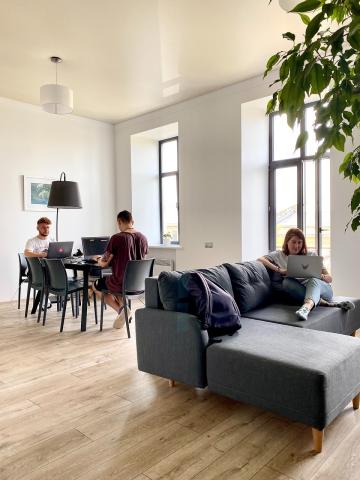Future Trends: What's Next for Co-Living in Bangalore's Dynamic Property Landscape
As Bangalore's property landscape continues to evolve at a rapid pace, co-living spaces have emerged as a game-changer in the city's housing market. Offering affordability, flexibility, and a sense of community, co-living has transformed the way residents experience urban living. In this blog post, we'll explore the future trends shaping the co-living sector in Bangalore and what lies ahead in this dynamic property landscape.
The Rise of Co-Living in Bangalore:
With the influx of young professionals, students, and digital nomads flocking to Bangalore in search of opportunities, traditional housing options often fall short in meeting the diverse needs of this demographic. Co-living spaces have stepped in to fill this gap, offering shared accommodations equipped with modern amenities, flexible lease terms, and a vibrant community atmosphere.
Future Trends in Co-Living:
Customized Living Spaces: As residents seek more personalized living experiences, co-living operators are exploring innovative ways to cater to individual preferences. From themed living spaces to customizable room layouts, the future of co-living in Bangalore will prioritize flexibility and personalization.
Technology Integration: With Bangalore's reputation as India's tech capital, it comes as no surprise that technology will play a significant role in shaping the future of co-living. Smart home features, mobile apps for managing bookings and payments, and IoT-enabled amenities are just a few examples of how technology will enhance the co-living experience in Bangalore.
Sustainability Initiatives: As environmental awareness grows, co-living operators are embracing sustainability initiatives to reduce their carbon footprint. From eco-friendly construction materials to energy-efficient appliances and waste management systems, sustainable living practices will become increasingly prevalent in co-living spaces across Bangalore.
Community Engagement: Building a strong sense of community has always been at the heart of co-living, and this trend is expected to continue in the future. From curated events and workshops to shared interest groups and volunteer opportunities, co-living operators will focus on fostering meaningful connections among residents.
The Impact on Bangalore's Property Landscape: As co-living becomes more mainstream in Bangalore, its impact on the city's property landscape is undeniable. Developers are increasingly incorporating co-living components into mixed-use developments, while investors are pouring capital into co-living startups and projects. This convergence of real estate and hospitality is reshaping the traditional notions of property ownership and rental accommodation in Bangalore.
Conclusion: As Bangalore's property landscape evolves, co-living is poised to play a pivotal role in shaping the future of urban living. By embracing trends such as customization, technology integration, sustainability, and community engagement, co-living operators are redefining the way residents experience and interact with their living spaces. Whether you're a current resident or considering co-living as a housing option in Bangalore, the future looks bright for this dynamic and innovative sector.



Comments
There are no comments yet
Leave a Comment